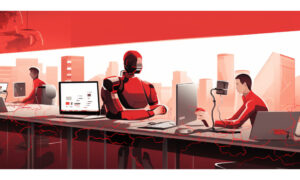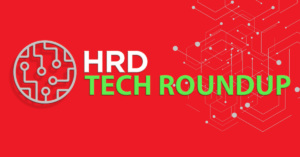Is automated recruitment the future of hiring? Jon Bischke, CEO, Entelo
- 4 Min Read
In this installment of our HRD Tech Founders Q&A series, Jon Bischke, CEO, Entelo, talks us through how automated source-to-hire recruitment is set to transform the role of the recruiter, and the success of businesses worldwide.
- Author: Michael Hocking
- Date published: Oct 30, 2019
- Categories

What is the true potential of HR and how can technology help us to achieve it?
In this installment of our HRD Tech Founders Q&A series, Jon Bischke, CEO, Entelo, talks us through how automated source-to-hire recruitment is set to transform the role of the recruiter, and the success of businesses worldwide.

What is Entelo?
Entelo is a recruiting automation platform that helps leading organizations find, qualify, and engage top talent. Today, we have customers of all sizes and industries that trust and leverage Entelo for higher candidate engagement, actionable insights and increased recruiter productivity. With our recent acquisition of ConveyIQ – the leading candidate engagement platform – we are building the only end-to-end, source-to-hire recruiting solution on the market.
Why was it necessary to create Entelo?
Back in 2011, I was working in venture capital and partnering closely with CEOs and executives to find solutions for the roadblocks in front of their company’s growth. I quickly realized that at the core of all their business challenges was one root issue: hiring. Their recruiting teams were bogged down in manual processes, leaving them unable to get in front of the right candidates before their competition.
I knew there was a better way to find the right people for your company, which is why I went on to start Entelo. Using predictive algorithms, data-backed insights, and the single largest source of recruiting data, we’ve created a recruiting automation platform to help you recruit faster, smarter, and better.
Why is HR technology crucial to the success of a business?
People are the true engine of any business’s success, which is why it is critical that companies invest heavily in talent acquisition and HR. That starts with equipping their recruiting and HR teams with the necessary tools and resources to be successful.
The HR technologies that are available today, powered by AI, machine learning and predictive analytics, are empowering talent teams to dramatically transform their people processes and ultimately gain a competitive edge in the war for talent.
How can an organization most effectively implement new HR technology?
The last thing you want to do is spend a big chunk of money on a shiny new piece of tech, just for it to go unused. That’s why it’s important to establish buy-in from ALL internal stakeholders, including senior leaders and managers who head up change management and the users themselves who will be incorporating the tool into their workflow.
It’s also critical that you find a vendor that is a partner. When you evaluate a new solution, you should be evaluating the vendor as well. Find out how they work with their customers to provide support, training, and education. We encourage our customers to create a must-have checklist for both the solution and the provider, which is why we put together a vendor evaluation checklist to be used as a starting off point.
What do you think is the biggest challenge affecting organisations today?
The modern recruitment process is incredibly segmented. With new technologies hitting the market every week, recruiters have become overwhelmed by tools- ATS’, CRMS, sourcing platforms, interview schedulers, engagement platforms…the list goes on. It means that the overall flow of their recruiting process is disjointed and as a result, candidate experience takes a hit. This type of segmented recruiting is inefficient and counterproductive to the value of the tools themselves.
Which emerging technologies do you think will transform HR in the future?
As I suggested above, one of the biggest challenges we are seeing in recruitment is tool segmentation– this is an area ripe for digital transformation. Rather than working across 50 different tools, recruiters need a unified platform that is their single source of truth and from which they can manage the entire recruitment process. This is the biggest opportunity ahead of the HR tech space.









